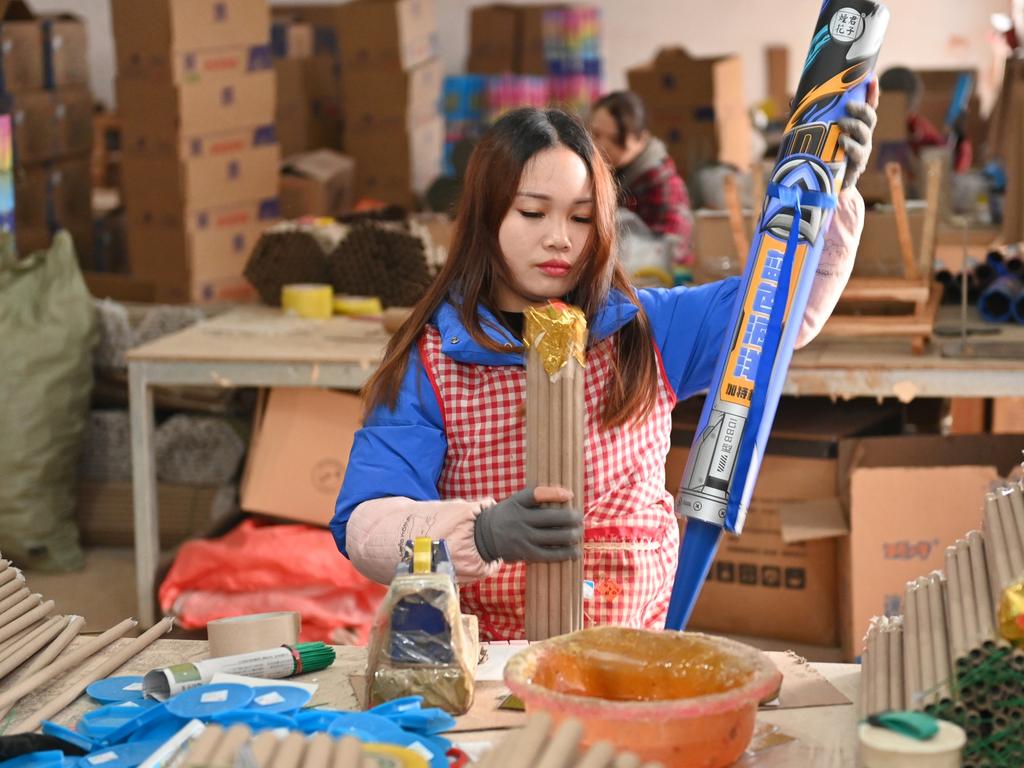China puts six-month limit on ease of rare-earth export licenses
The limit allows Beijing to retain its chokehold on the critical minerals to give it valuable ammunition for future negotiations with the US.

China is putting a six-month limit on rare-earth export licenses for US automakers and manufacturers, according to people familiar with the matter, giving Beijing leverage if trade tensions flare up again while adding to uncertainty for American industry.
Beijing’s agreement to temporarily restore rare-earth licenses was one of the key breakthroughs in the latest round of intense trade talks in London, but the six-month limit illustrated how each side is retaining the tools to easily escalate tensions again.
In exchange for the Chinese easing rare-earth curbs for now, the people said, US negotiators agreed to relax some recent restrictions on the sale to China of products such as jet engines and related parts, as well as ethane, a component of natural gas important in manufacturing plastics.
Details of the framework to uphold an interim agreement forged in Geneva last month are still being worked out, the people said. The White House declined to comment.
According to people who consult with Chinese officials, Beijing wants to retain its chokehold on the critical minerals to give it valuable ammunition for future negotiations.
During the London meetings, China agreed to start approving rare-earth license applications for US companies right away, pending the sign-off of President Trump and Chinese leader Xi Jinping on the trade framework, according to a person with direct knowledge of the matter. The earliest an application could be approved is within a week of the two leaders officially signing off on the framework originally established in the meetings last month in Geneva, this person said.

The person also noted that as China approves the applications, the US will start to drop its countermeasures, including export controls on the jet engines and ethane.
Trump said Wednesday that the deal with China to restore the trade ceasefire was done, subject to final approval from himself and Xi. “FULL MAGNETS, AND ANY NECESSARY RARE EARTHS, WILL BE SUPPLIED, UP FRONT, BY CHINA,” Trump posted on his Truth Social platform, without giving additional details on the Chinese commitment.
China’s grip on rare-earth exports has become a key point of leverage for Beijing in trade negotiations with the US In the wake of the trade truce in Geneva in mid-May that was expected to ease the flow, Washington accused Beijing of slow-walking export licenses. Beijing, in turn, blamed the Trump administration for undermining the Geneva agreement.
As part of the trade framework, the people said, the temporary rare-earths licenses Beijing is expected to start issuing immediately will mostly involve elements used in manufacturing electric vehicles, wind turbines, consumer electronics and military equipment.
With the tentative deal, Washington and Beijing are tamping down tensions that just a week ago threatened to disrupt global supply chains. Now both sides have until August to negotiate a broader trade agreement, though they can also choose to extend that deadline.
The trade war between Washington and Beijing has in recent weeks veered away from tariffs and toward each country’s restrictions on materials or products the other desperately needs. But what to do about tariffs is likely to play a larger role in coming talks.

For now, tariffs are staying at levels agreed to in the deal reached in Switzerland in mid-May. Trump said in his Thursday post that the US is “getting a total of 55 per cent tariffs” – a reference to the 30 per cent duties applied in his second term on China, which added to levies in place before he took office in January. Trump also said in his post that China is “getting 10 per cent” tariffs on American products.
According to the Peterson Institute for International Economics, average Chinese tariffs on US products are about 33 per cent.
To restore the trade truce brokered a month ago, both Washington and Beijing have adopted a trade-war playbook of escalation followed by de-escalation – a risky game foreign-policy and trade experts say hurts prospects for a long-lasting agreement.
Beijing, upset by a recent US warning targeting Huawei Technologies, all but choked off the supply of rare earths to American carmakers and defence contractors. Washington, in response, banned the sale of jet engines and other products China desperately needs.
Then just as quickly, the escalation by both sides was followed by a sigh of relief for businesses and investors worldwide: a phone call by Trump and Xi, and then renewed trade negotiations this week in London.
It was China’s chokehold on rare-earth exports that helped drive the parties to reconvene for the London talks, prompting the Trump administration to put US export controls – a key hurdle for China’s industrial and technological ambitions – on the table for the London negotiations.
Historically, US legal experts say, Washington has limited such control measures to the purpose of protecting national security. During the administration under former President Joe Biden, US officials rebuffed repeated Chinese requests to try to negotiate away those controls, saying the actions weren’t up for bargaining. Biden officials called it the “small yard, high fence” strategy.
The current Trump administration, by contrast, has expanded the use of export controls to include them as leverage aimed at extracting concessions from China. The London framework involves the US undoing some recent controls, such as those on jet engines and related parts in exchange for China speeding up the issuance of rare-earth licenses.
However, according to the people familiar with the matter, the US isn’t walking back measures aimed at preventing China from accessing critical American technology that could help advance its ambitions in such strategic sectors as high-end chips and artificial intelligence.
“Those are not on the table,” one of the people said. “But you know the Chinese will keep pushing.”
Dow Jones





To join the conversation, please log in. Don't have an account? Register
Join the conversation, you are commenting as Logout